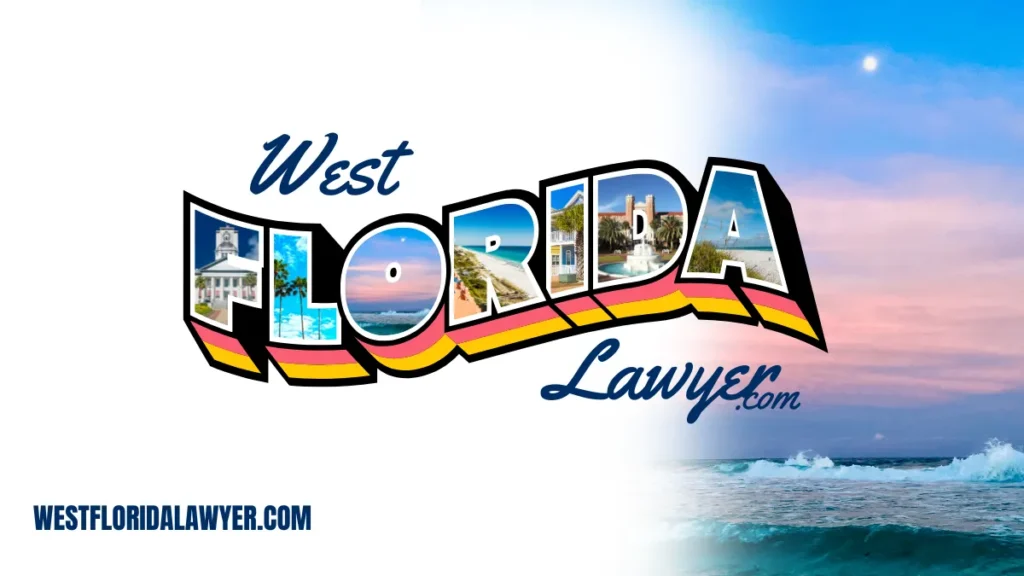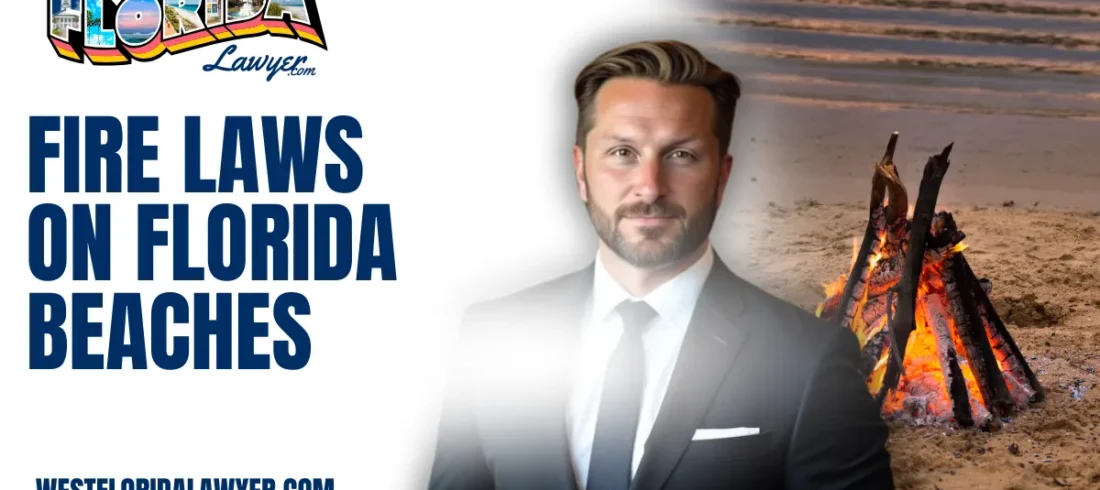Firework Laws on Florida Beaches | West Florida Lawyer
Fireworks are a staple of celebrations across the United States, especially in Florida, where the beaches provide a picturesque backdrop for dazzling displays. However, Florida beach firework laws are strict and regulated to ensure safety and compliance with state and local ordinances. West Florida Lawyer wants to express that these laws is crucial for both residents and visitors to avoid legal issues and penalties.

Florida Beach Firework Laws
Florida has specific regulations regarding fireworks, and these laws apply equally to public and private beach areas. While some fireworks are permitted, many are restricted under state law. The main governing legislation is Florida Statute 791, which categorizes fireworks into two groups: permissible consumer fireworks and prohibited explosive devices.
Under Florida beach firework laws, sparklers, fountains, and smoke devices are generally allowed. However, any fireworks that explode, launch into the air, or contain highly combustible materials are typically illegal without a special permit. This means that traditional firecrackers, mortars, and rockets are not permitted for general consumer use.
Are Fireworks Legal on Florida Beaches?
Florida beaches fall under the jurisdiction of local governments, which means rules can vary depending on the city or county. While the state sets baseline regulations, each municipality has the authority to impose stricter rules regarding Florida beach firework laws.
- Public Beaches: Most public beaches in Florida have strict no-firework policies. Cities such as Miami Beach, Clearwater, and Destin explicitly ban fireworks on their shores. Violators may face hefty fines or even criminal charges.
- Private Beaches: If a beach is privately owned, the property owner may have more discretion over firework usage. However, this does not exempt individuals from state laws restricting certain types of fireworks.
- State and National Parks: Florida’s state and national parks, including beaches within these areas, prohibit fireworks entirely to protect wildlife and prevent fires.
Fireworks and Florida’s New Year’s Eve and Fourth of July Exception
In 2020, Florida beach firework laws were updated with the passage of Senate Bill 140, which allows fireworks on three specific holidays:
- New Year’s Eve (December 31st)
- New Year’s Day (January 1st)
- Independence Day (July 4th)
This means that on these designated holidays, residents and visitors can legally use fireworks without requiring a permit. However, this law does not override local restrictions, meaning certain beaches may still enforce a no-fireworks policy. Always check with local authorities before setting off any fireworks on the beach.

Penalties for Violating Florida Beach Firework Laws
Violating Florida beach firework laws can result in severe penalties, including:
- Fines: Depending on the jurisdiction, fines can range from $100 to over $1,000 per offense.
- Misdemeanor Charges: Illegal firework usage can result in a second-degree misdemeanor, which may carry up to 60 days in jail and additional fines.
- Property Damage Liability: If fireworks cause damage to property, including beachfront homes, hotels, or wildlife areas, individuals can be held financially responsible for the damages.
- Arrest and Criminal Charges: Repeat offenders or individuals causing significant public disturbance can face arrest and heightened legal consequences.
How to Legally Use Fireworks on Florida Beaches
If you wish to enjoy fireworks on Florida’s beaches legally, consider these alternatives:
- Attend a Public Firework Show: Many cities host professional firework displays that are both legal and safe.
- Obtain a Special Permit: Businesses or event organizers may apply for a permit to use fireworks in designated areas.
- Use Legal Fireworks: Stick to sparklers and non-explosive devices that comply with Florida beach firework laws.
Protecting Florida’s Beaches and Wildlife
Florida’s beaches are home to a variety of wildlife, including endangered sea turtles and birds that nest along the shore. Fireworks pose a significant threat to these species by causing disorientation, stress, and even fatalities. Many coastal areas have strict environmental protection regulations that further prohibit fireworks to safeguard marine life.
The Role of Law Enforcement in Enforcing Firework Laws
Local law enforcement agencies play a critical role in ensuring compliance with Florida beach firework laws. Officers regularly patrol popular beach areas, especially during holidays and peak tourist seasons, to monitor illegal firework activities.
- Warnings and Citations: First-time offenders may receive a warning, but repeated violations often result in fines or legal action.
- Firework Confiscation: Unauthorized fireworks found on public beaches are subject to immediate confiscation by law enforcement officers.
- Emergency Response: In the event of firework-related accidents or fires, police and fire departments work together to provide rapid response and ensure public safety.
Visitors and residents should be aware that law enforcement takes firework violations seriously, and non-compliance can lead to significant legal consequences. To avoid any issues, always verify local regulations before setting off fireworks on Florida’s beaches.

What to Do If You Are Injured or Penalized for Fireworks on Florida Beaches
If you or someone you know has been injured by fireworks or cited for violating Florida beach firework laws, seeking legal assistance is crucial. At West Florida Lawyer, we specialize in handling cases involving personal injuries, citations, and legal disputes related to fireworks and public safety regulations.
If you need legal guidance, complete our free case evaluation form to receive expert legal advice on your situation.
Understanding Florida beach firework laws is essential for ensuring a safe and lawful experience on Florida’s shores. While fireworks are a festive tradition, their use is highly regulated to protect both people and the environment. Always check local ordinances before lighting fireworks on the beach and consider safer alternatives like attending professional firework displays.
For those who find themselves in legal trouble related to fireworks, seeking legal counsel from West Florida Lawyer can help navigate the complexities of Florida’s firework regulations.
Sources
- Florida Statutes Chapter 791 – Provides official laws regarding fireworks in Florida. Read more.
- Florida Department of Environmental Protection – Details restrictions on fireworks in protected beach areas. Visit website.
- Local Government Ordinances – Municipal codes for specific beach regulations. Check with your local city or county website for detailed restrictions. Visit website

